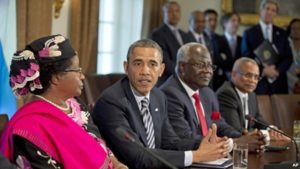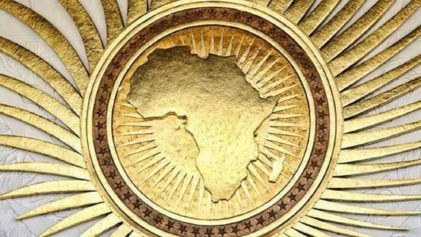U.S. trade officials inked an agreement on Thursday aimed at increasing trade and investment with five East African nations while boosting the economic relationship across the continent.
U.S. Trade Representative Michael Froman said the deal will ramp up the U.S. partnership with the East African Community (EAC), which includes Burundi, Kenya, Rwanda, Tanzania and Uganda, while reaching deeper into Africa to improve trade.
“Today’s agreement is an important milestone for deepening what has already proven itself to be a promising and impactful partnership,” Froman said.
“This agreement will help us lift the burdens that trade barriers impose, unlocking opportunity on both our continents.”
Thursday’s deal will help the African nations further streamline the customs process, meet global standards on food protections and reduce other technical barriers to trade.
It also establishes a new five-year, $64 million trade and investment hub in East Africa focused on broadly increasing exports under the African Growth and Opportunity Act (AGOA), while expanding and diversifying regional agricultural trade and food security.
During a summer 2013 trip to Africa, President Obama announced the Trade Africa initiative to promote U.S.-Africa trade and investment, with the starting point in East Africa.
With strides made there, the Obama administration wants to deepen that relationship by knocking down additional trade barriers in the region while expanding the U.S. reach to other African nations.
“We see this agreement and all our work with the EAC to date as an important steppingstone, not the final destination,” Froman said.
Successes in the region, Froman said, include a significant reduction — to six days from 21 — in container transit times from Mombasa, the biggest port in the region, to Kigali, Rwanda.
That helped boost trade to $4.7 billion in 2013 within the five-nation bloc, up from $2.3 billion in 2005.
Trades of goods between the United States and the five countries totaled $2.8 billion in 2014, the USTR said.
“Together, we can tackle more tasks, support more jobs, and unlock more opportunities for the American and African people alike,” Froman said.
The new EAC strategy also started a new commercial dialogue to develop public-private initiatives to further bolster trade.
“The global economy is evolving and the U.S.-Africa economic relationship must evolve, too,” he said.
The move comes as the Obama administration and Congress are discussing a renewal and modernization of AGOA, which expires in September.
“Prompt renewal is critical because many businesses plan their orders six, even 12 months in advance, and waiting until the 11th hour to renew AGOA will result in jobs lost, factories closed, and investment deferred, all of which undermine our goal for a stronger U.S.-Africa economic relationship,” Froman said.
Source: The Hill



